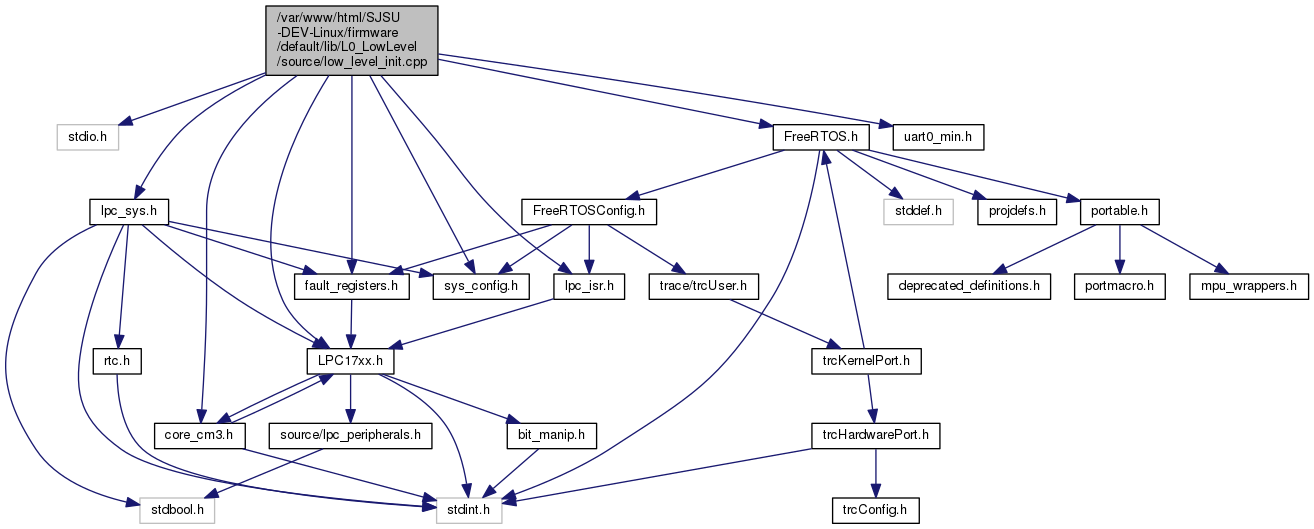low_level_init.cpp File Reference
#include <stdio.h>#include "sys_config.h"#include "LPC17xx.h"#include "uart0_min.h"#include "lpc_isr.h"#include "lpc_sys.h"#include "core_cm3.h"#include "fault_registers.h"#include "FreeRTOS.h"
Include dependency graph for low_level_init.cpp:

Functions | |
| void | syscalls_init (void) |
| void | sys_clock_configure () |
| sys_boot_t | sys_get_boot_type () |
| rtc_t | sys_get_boot_time () |
| void | low_level_init (void) |
Function Documentation
| void low_level_init | ( | void | ) |
Initializes the minimal system including CPU Clock, UART, and Flash accelerator Be careful of the order of the operations!!!
Turn off I/O buffering otherwise sometimes printf/scanf doesn't behave correctly due to strange buffering and/or flushing effects.
| void sys_clock_configure | ( | ) |
< Not used (reserved)
Disconnect PLL0 (in case bootloader uses PLL0) Choose internal oscillator going forward (for now)
Connect PLL0 as our clock source. Right before we make the PLL clock as CPU clock, set our divider so our CPU clock doesn't go out of range once the faster PLL clock is established.
| rtc_t sys_get_boot_time | ( | ) |
- Returns
- the boot-time recorded in the system
| sys_boot_t sys_get_boot_type | ( | ) |
Defined at system_init.c
- Returns
- the reboot reason as detected during system startup
| void syscalls_init | ( | void | ) |


 1.8.11
1.8.11